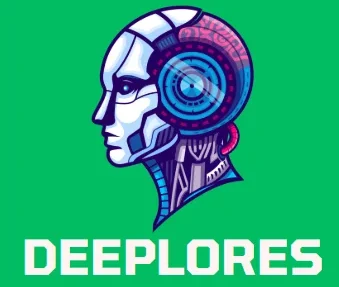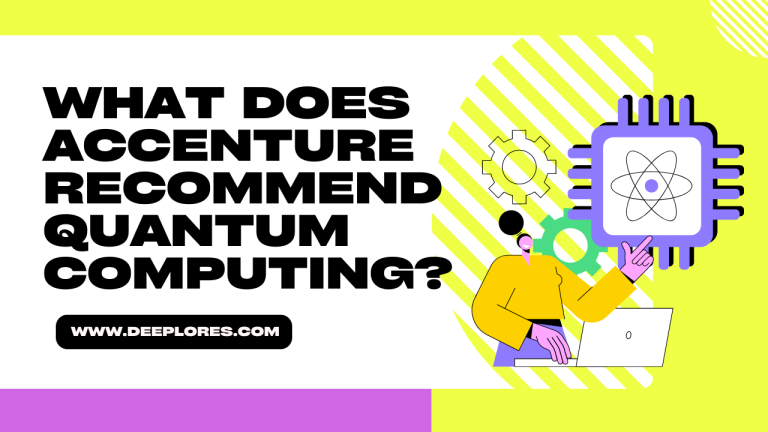Quantum Computing for Everyone [2024]
Introduction
Quantum computing, once a mysterious topic only accessible to experts, is now breaking into the mainstream. Why? Because the potential of this revolutionary technology reaches beyond labs and into our everyday lives. So, if you’ve ever asked, “How can I learn about quantum computing?” or “What’s the future of quantum computing?”. You’re at right place to learn explore the term quantum computing for everyone.
How Do Quantum Computers Differ from Classical Computers?
Traditional computers use bits—either 0s or 1s—to process data. Quantum computers, however, use qubits, which can be both 0 and 1 simultaneously. This mind-bending concept allows quantum computers to solve complex problems unimaginable for classical systems.
Quantum Computing for Beginners
Understanding quantum computing doesn’t require a Ph.D. Think of it this way: while classical computers are like a lone pianist, quantum computers are an entire orchestra, harmoniously working together to produce richer, more complex outcomes.
Quantum Computing Applications
Are quantum computers only for elite scientists? No! From medicine to logistics, the potential applications touch numerous industries. And as the technology matures, who knows? Maybe someday you could use a quantum application on your phone or laptop!
Quantum Computing Potential
This technology isn’t limited to high-tech labs or major corporations. Startups, educators, and enthusiasts are democratizing access, making quantum technology accessible to all. Soon, there will be user-friendly quantum programming languages, ensuring quantum computing is suitable even for non-technical individuals.
What Are the Challenges in Making Quantum Computing Accessible to All?
Like all revolutionary technologies, there are hurdles. Quantum systems are sensitive, require unique environments, and can be expensive. However, each day brings new quantum computing breakthroughs, reducing these barriers and paving the way for widespread adoption.
Real-World Examples
From optimizing delivery routes to designing new drugs, the practical applications of quantum computing are numerous. Companies worldwide are harnessing this technology, ensuring its benefits ripple out to society at large.
Quantum Computing Made Easy
While quantum computing seems a domain for scientists and experts, various platforms have emerged to make it more tangible for everyone. Companies like IBM and Google have started offering cloud-based quantum computing services. This means that even without owning a quantum computer, you can run simulations and experiments online!
From Theory to Practicality
At its core, quantum computing manipulates the probabilistic nature of quantum bits (qubits) to perform operations. The practical implications? We’re looking at advanced algorithms, solving previously impossible mathematical problems, and processing information at unparalleled speeds.
Quantum Computing in Daily Life
While we might not realize it, quantum computing will soon seep into our daily lives:
- Medicine: By analyzing vast datasets, quantum computers can aid in drug discovery and medical diagnoses. This means quicker treatments and personalized medical interventions.
- Finance: Quantum algorithms can optimize trading strategies, manage risk, and analyze market data in real-time.
- Energy: From optimizing the electrical grid to better harnessing renewable sources, quantum computing can revolutionize how we consume and conserve energy.
Are There Any Online Courses for Quantum Computing Beginners?
Yes, and the number is growing! Platforms like Coursera, Udemy, and edX offer courses designed for beginners. Renowned universities such as MIT, Stanford, and the University of Waterloo have also begun providing online resources, ensuring a solid grounding in the fundamentals.
Quantum Computing and Education
Educational institutions are quickly recognizing the importance of quantum computing. More schools are integrating it into their curriculum, ensuring that the next generation is well-equipped to harness its potential. With tools and simulations becoming more user-friendly, students as young as in high school can begin dabbling in the quantum realm.
Challenges and the Road Ahead
As promising as quantum computing sounds, it’s not without challenges:
- Error Rates: Quantum computers can be error-prone. Ongoing research focuses on error correction to enhance reliability.
- Hardware Limitations: Building stable qubits for scalable quantum computers is challenging due to the delicate nature of quantum phenomena.
- Decoherence: Quantum information can be lost, a phenomenon known as decoherence. Overcoming this will be essential for practical quantum computing.
Despite these challenges, relentless innovation in the field promises a future where these issues become mere footnotes in the grand quantum story.
Quantum Computing Communities
For those eager to dive deeper, numerous online forums and communities, like Quantum Computing Stack Exchange and r/QuantumComputing on Reddit, offer a space for beginners and experts alike to discuss, share, and learn.
FAQs
Can I build my own quantum computer at home?
While building a quantum computer at home remains a challenging endeavor, there are quantum computing simulations available for beginners.
How does quantum cryptography work, and is it for everyone?
Quantum cryptography leverages the principles of quantum mechanics to secure data. While complex, its principles are becoming integrated into everyday security systems.
Are there any quantum computing startups focused on accessibility?
Absolutely! Several startups aim to make quantum technology more user-friendly and widespread.
What programming skills are needed to engage with quantum computing?
Quantum computing does have its unique programming languages. However, resources and courses are popping up daily, designed to teach even the most novice programmer.
Also Read: What Does Accenture Recommend Quantum Computing?
Wrapping Up
It’s clear that quantum computing is no longer just a dream of the future—it’s becoming a present reality. As advancements continue and accessibility increases, the world stands on the brink of a quantum revolution. The invitation is open to everyone: Let’s explore, learn, and shape the quantum future together.
In wrapping up this article, we aspire to have given you a comprehensive understanding of “quantum computing for everyone” and its implications, arming you with the knowledge necessary to navigate this area successfully.
![Quantum Computing for Everyone [2024] 2 Lena Kelly](https://deeplores.com/wp-content/uploads/2023/06/Lena-Kelly.jpg)
Blogger extraordinaire and wordsmith extraordinaire. She weaves captivating tales with her pen and enthralls readers with her insightful blog posts. Join her on a literary journey filled with wit, wisdom, and a dash of whimsy. Prepare to be spellbound!

![Quantum Computing for Everyone [2024] 1 Quantum Computing for Everyone](https://deeplores.com/wp-content/uploads/2023/08/Quantum-Computing-for-Everyone-.png)





